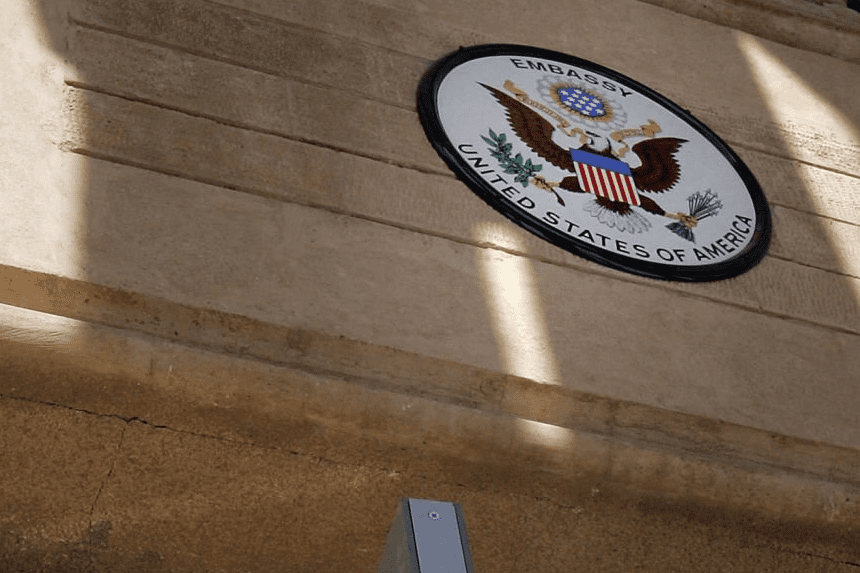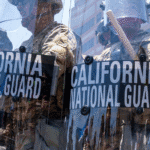A turning point in rising Middle East tensions is the US embassy withdrawal from Iraq. Initiated by intelligence reports of a possible Israeli strike on Iran, the evacuation seeks to protect American staff among growing risks. US officials expect Iran to respond by attacking US facilities all around, so a quick response is expected. This action exemplifies Washington’s approach to lowering vulnerability without compromising diplomatic pressure. The US embassy evacuation emphasizes the delicate balance between diplomacy and defense as nuclear negotiations with Iran stand still. It expresses growing worry about regional stability and American interests abroad.
- Why is the US emptying its embassy in Iraq?
- What sent off the regional security alert?
- How is the US handling diplomatic ties to Iran?
- What part does military presence in the region serve?
- How has Iran responded to the acts taken by the US and Israel?
- Could This Tension Impact Global Markets?
- This implies what for US foreign policy?
- Does this kind of action have precedent?
- What Could Shape the Region’s Next Moves?
- Conclusion: Is the US Embassy Move a Signal of Broader Middle East Instability?
Why is the US emptying its embassy in Iraq?
With non-essential diplomatic officials and their families directed to evacuate the Baghdad mission, a mounting tide of alarm has set off a US embassy evacuation from Iraq. The action follows a rise in regional instability connected to higher tensions between Iran and its enemies, especially Israel and the United States. Though US authorities have not disclosed particular information, intelligence points to a possible Israeli military action against Iran.
This precautionary action reflects major security evaluations by American authorities, who think US sites in Iraq could be targets for reprisals. Government insiders claim that possible Iranian reactions could consist of strikes on American facilities spread around the Middle East. To reduce risk, the embassy is therefore drastically cutting down its activities. Here is the link of our article on Iranian Hacking Probe
What sent off the regional security alert?
Rising threats, combined rather than one incident set, prompted the US embassy’s departure. One main influence is the anticipated Israeli military move meant to stop Iran’s nuclear progress. American authorities worry that if Israel strikes Iran, it might set up a forceful counter-response that directly puts US soldiers in Iraq at risk.
Concurrent with this seems to be a deadlock in nuclear negotiations between the US and Iran. With diplomatic interaction declining, the possibility of misunderstandings or planned escalations grows. Iran’s government has previously said it will fight against any alleged act of aggression, including acts of US allies like Israel. American intelligence points to this possibly involving attacking US military troops stationed in the area, or bases and embassies.
How is the US handling diplomatic ties to Iran?
Diplomatic attempts have not been abandoned despite increased hostilities. To start fresh conversations about Iran’s nuclear program, the US Middle East envoy is set to meet the Foreign Minister of Iran in Muscat. This conference is a crucial endeavor to stop full-scale conflict and lower the possibility of miscalculations that might start military escalation.
The conversations will probably center on uranium enrichment operations, nuclear site inspections, and Iran’s more general geopolitical influence based on defense posture. Iran asserts, long contested by Western powers, that its nuclear program is intended just for civilian energy generation. The result of these negotiations could determine whether the crisis gets more or less diffused in the next days. Here is the link to the article on the Trudeau Resignation Impact
What part does military presence in the region serve?
With around 2,500 troops stationed all around Iraq, the United States keeps a noteworthy military presence there. Mostly assigned to support counterterrorism operations and train Iraqi security personnel, this unit is, under present circumstances, though, these soldiers could become targets in a more general geopolitical conflict.
Anticipating more volatility, the US Defense Secretary has authorized military families from other surrounding countries, including Kuwait and Bahrain, to voluntarily leave. Such actions show a more general regional warning, suggesting a belief that conflict could spread over borders and affect several American sites.
How has Iran responded to the acts taken by the US and Israel?
Iranian officials have denounced both the continuing rhetoric from Israel and the US embassy removal. Iran’s Defense Minister said in a recent speech that any military attack against Iran will set off extreme reprisals. He underlined that should the present impasse become open conflict, US installations throughout the Middle East would be in danger.
Tehran also attacked a recent International Atomic Energy Agency (IAEA) report claiming Iran’s partial cooperation with nuclear inspections fell short. Iranian officials contend that the IAEA report is based on false information and supposedly supplied documents from Israeli sources. This back-and-forth emphasizes the brittle confidence between Iran and Western observers and raises the possibility of more diplomatic disintegrations.
Could This Tension Impact Global Markets?
Already influencing world markets, especially oil prices, news of the US embassy relocation has caused oil prices to surge by more than 4% following the statement, a reflection of worries about Middle Eastern war upsetting supplies of fuel. The area is still among the most significant oil-producing zones in the world, hence any disturbance could affect manufacturing volume and shipping paths.
Furthermore, under issue now is marine security. The Maritime Trade Operations group of the United Kingdom issued a warning stating that growing military activities in the area could compromise commercial shipping. Alarms in the world commerce community have been raised by past shipping delays and attacks on oil tankers resulting from tensions in the Persian Gulf.
This implies what for US foreign policy?
The current state of affairs tests US foreign policy in the Middle East, most importantly. The Biden government is under pressure to provide regional security, back its friend Israel, and prevent a full-scale conflict with Iran. Juggling these goals has never been more difficult. The US embassy departure is a clear admission that Washington expects actual danger not far off.
The US is also working to keep open lines of diplomatic contact simultaneously. This double strategy, lowering physical presence while negotiating, shows how the government intends to handle the crisis without compromising its strategic objectives.
Does this kind of action have precedent?
The US has brought back its personnel from Iraq before now. In retaliation for the murder of General Qasem Soleimani, Iran fired missiles toward airbases housing American personnel in January 2020. Although no one died, hundreds of military personnel suffered terrible brain injuries. That experience was a sobering reminder of how fast hostilities may become lethal.
Given history, the present US embassy evacuation is seen not merely as a security precaution but also as a warning to stop another cycle of violent reprisal.
What Could Shape the Region’s Next Moves?
The course forward mostly relies on the results of forthcoming diplomatic interactions as well as on the direction of Israeli military preparations. Should diplomacy take the front stage, it may reduce the possibility of instantaneous conflict. But should negotiations go apart and military operations intensify, a more general clash seems certain.
The US keeps lowering its presence in Iraq at the moment while keeping an eye on dangers to American installations and personnel throughout the Middle East. All eyes are on the forthcoming discussions in Muscat and the IAEA conference in Vienna, which will provide important signals regarding whether the area slides toward peace or descends into more anarchy.
Conclusion: Is the US Embassy Move a Signal of Broader Middle East Instability?
More than just a precaution, the US embassy evacuation marks a warning that Middle Eastern tensions are approaching a breaking point. Both US and regional leaders must consider every choice carefully as diplomatic alternatives grow limited and military rhetoric intensifies. For those on the ground, as well as for international stability and energy markets, the stakes are enormous. Should diplomatic initiatives fail, the repercussions may shift alliances, destabilize global markets, and ignite a renewed Middle Eastern conflict. Until then, the best strategies to manage this increasingly volatile scenario remain awareness, communication, and careful planning.








